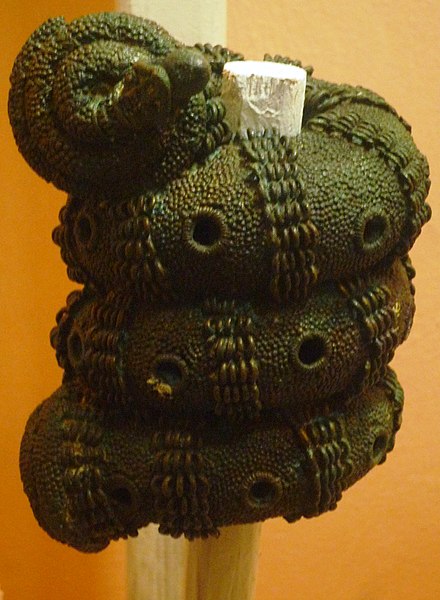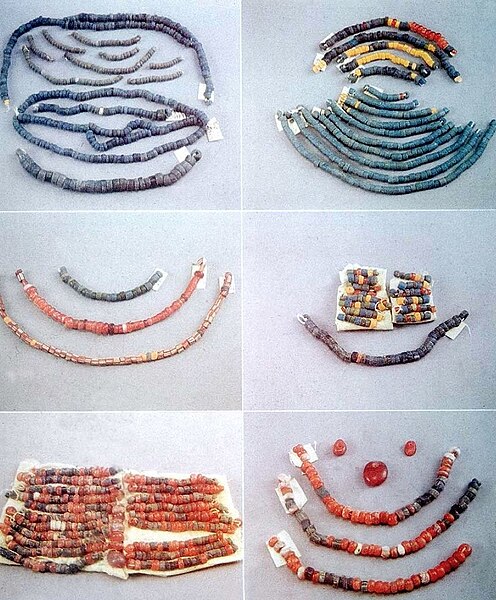Igbo-Ukwu is a town in the Nigerian state of Anambra in the south-central part of the country. The town comprises three quarters namely Obiuno, Ngo, and Ihite with several villages within each quarter and thirty-six (36) administrative wards. It is also bordered by Ora-eri, Ichida, Azigbo, Ezinifite, Amichi, Isuofia, Ikenga and some other towns.
9th century Igbo-Ukwu bronze ceremonial staff head
Human and ram's head pendants from Igbo-Ukwu in the British Museum
Bronze pot, Igbo-Ukwu
Bronze ceremonial vessel in form of a snail shell, 9th century, Igbo-Ukwu
The Igbo people are an ethnic group in Nigeria. They are primarily found in Abia, Anambra, Ebonyi, Enugu, and Imo States. A sizable Igbo population is also found in Delta and Rivers States. Igbo is also considered a very minority tribe in states such as Benue, Kogi, Akwa Ibom and Edo. Ethnic Igbo populations are found in Cameroon, Gabon, and Equatorial Guinea, as migrants as well as outside Africa. There has been much speculation about the origins of the Igbo people, which are largely unknown. Geographically, the Igbo homeland is divided into two unequal sections by the Niger River—an eastern and a western section. The Igbo people are one of the largest ethnic groups in Africa.
Igbo family in traditional attire
Glass beads from Igbo-Ukwu
An Igbo man with facial scarifications, known as ichi, early 20th century
Bronze ornamental staff head, 9th century, Igbo-Ukwu







